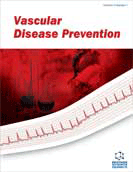Abstract
Endothelial dysfunction due to reduced bioavailability of nitric oxide (NO) is an early step in the course of atherosclerotic cardiovascular disease (CVD). NO is synthesized from L-arginine via the action of NO synthase (NOS), which is known to be blocked by endogenous L-arginine analogues such as asymmetric dimethylarginine (ADMA). ADMA is a naturally occurring amino acid found in plasma and various types of tissues. Recently, it has been demonstrated that plasma levels of ADMA are elevated in patients with cardiovascular risk factors including hypertension, diabetes and chronic kidney disease. Plasma ADMA levels are one of the useful biomarkers of future cardiovascular events in apparent healthy subjects as well as high-risk patients. In this review, we first discuss the synthesis and metabolism of ADMA and then consider the molecular mechanisms for the elevation of ADMA levels in various disorders.
Keywords: Dimethylarginine, atherosclerosis, oxidative stress, nitric oxide, advanced glycation end products, chronic kidney disease


